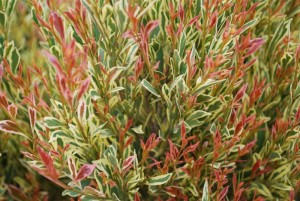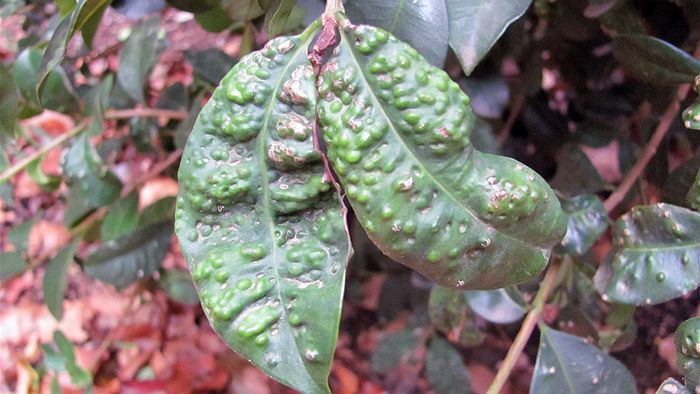Have you noticed little bumps appearing on the new growth of your lilly pillies? These are actually caused by little insects, called psyllids (Trioza egeniae).
Psyllids attack the undersides of leaves by sucking the sap, and this creates small recesses which appear as lumps or ‘pimples’ on the upper surface and corresponding depressions on the underside as the insects move about.
The most susceptible plants for psyllid attack are Syzygium australe (and some of its cultivars), Syzygium paniculatum cultivars and Waterhousea species.
Even though they won’t kill your plant, they can be a problem as they weaken the plant and look very unsightly. Removing the affected foliage is only a short-term solution as the psyllids can simply hop to other leaves and plants and return shortly after.
If you have existing plants that are affected, you can treat with white oil or a systemic pesticide – this is absorbed though the foliage and moves throughout the plant essentially working from the inside out. This can be problematic as by the time the damage is visible, it may be too late to spray.
A healthy plant is less likely to be attacked, so be sure to take care of your plants needs first to give it a fighting chance. Fertilise according to your plants needs and lots of TLC.
The very best solution to combat psyllids, is to plant psyllid-resistant plants!
Austraflora’s very own Acmena Moonlight Flame is a lilly pilly that is highly resistant. The smooth soft pale green & yellow foliage of this small shrub catches the eye, but even more so when it’s flushed with lovely pink new tips that cover the plant for many weeks in spring. It only needs minimal trimming to keep it neat. Sun or shade and good drainage, cool temperate to sub tropical climates, and some protection from frosts or strong coastal winds are all that’s required.
You’ll find that it is easier to choose a psyllid-resistant plant option, rather than dealing with the stress of treating a more susceptible plant – especially as treatment options can be ineffective, time-consuming and not always eco-friendly.

Acmena Moonlight Flame


